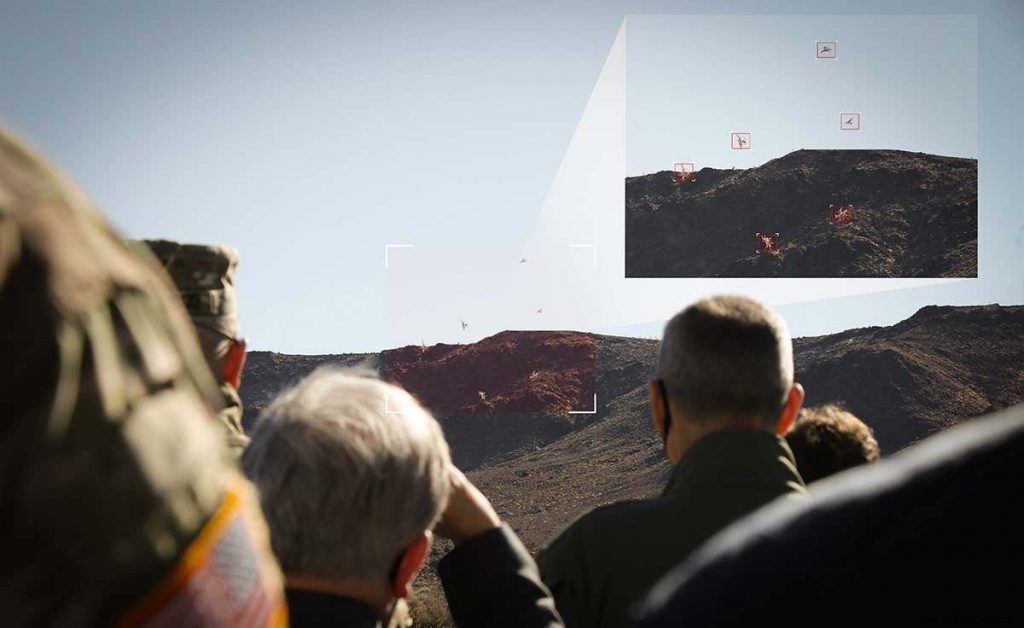We call it Leonidas, and it can neutralize a whole swarm of drones in one go. This new microwave weapon that looks like something out of a sci-fi movie, developed by the company Epirus Inc., can also target a single drone within a group with impressive precision.
Since the rise of consumer drones, several anti-drone weapons — such as RF jammers or long-range net guns — have been proposed, but these are generally less effective against military drones. Indeed, the latter are often protected against radio jamming, either thanks to radio systems resistant to jamming, or by having the capacity to operate autonomously, without a radio link with an operator.
The Leonidas system produced by Epirus, an American start-up, therefore takes a different approach. The device emits a high-powered microwave beam that overloads the drone's electronics and causes it to fall. While existing microwave weapons are mostly as big as a shipping container, Leonidas fits in the back of a pick-up truck and can be controlled with great precision.
“Our systems give us the ability to widen or narrow the beam in any direction to neutralize enemy targets, and nothing else says Leigh Madden, CEO of Epirus. The company is also working on a smaller version of the weapon, which could be carried by ground operators.
During a demonstration for a US government client in February 2021, Leonidas shot down 66 out of 66 (drone) targets, or 100% success. In some tests it shot down multiple drones at once, and in others it targeted one while leaving adjacent drones intact, demonstrating unexpected accuracy for such a system.

Leonidas is based on an array of solid-state emitters composed of gallium nitride. Used initially for military radar and more recently in 5G communications systems, these transmitters are more compact than traditional radar devices and can be individually controlled to steer the microwave beam with high precision.
Justin Bronk, of the defense think tank RUSI in London, notes that while microwaves may be more acceptable than guns or missiles for defending populated areas, high precision is needed. “In urban areas, there is a risk of damaging electrical infrastructure or burning out people’s electronic devices he explains.
This technology promises to protect military and civilian infrastructure, for example airports and stadiums. It could help thwart massive drone attacks, like the one that knocked out the Abqaiq oil processing facility in Saudi Arabia in 2019. Many countries, including China, Russia, the United States and the United Kingdom, are developing drones capable of swarm attack with the aim of overwhelming existing defenses with their numbers. High power microwaves may therefore offer the best protection against this type of attack.